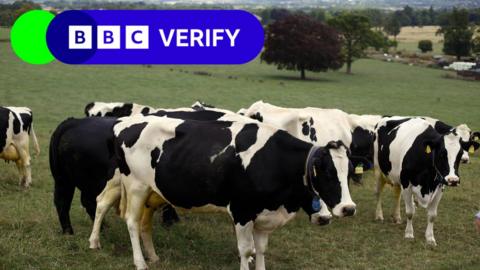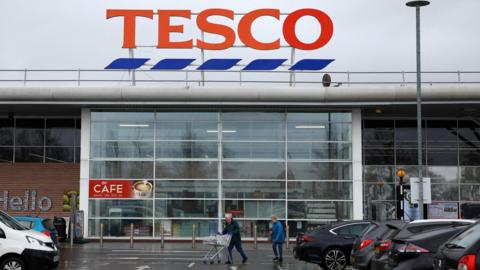Some UK social media users have been pouring milk down their sinks and toilets in protest at the trial of a new feed additive that claims to significantly reduce the emission of methane gas in dairy cows.
Arla Foods, a Danish-Swedish company which owns the UK’s biggest dairy cooperative, announced last week that 30 of its farms across the country would test the additive, named Bovaer.
The company says Bovaer - which is added in small quantities to cow feed - could reduce cow methane emissions by between 30-45%.
It has been approved for use by UK regulators, and several major supermarkets will stock milk produced by cattle eating feed with the additive.

